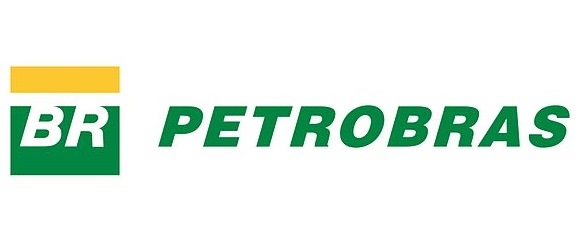After having downgraded Brazil’s sovereign rating to below investment grade Thursday, rating agency S&P has now also downgraded Petroleo Brasileiro S.A. (NYSE: PBR), or Petrobras. The company’s stand-alone-credit-profile has long been acknowledged to be below investment grade status, but an implicit assumption by the rating agencies of government support was keeping Petrobras at the same level as the sovereign bonds. A couple of other analysts jumped at the opportunity to readjust their views on the Brazilian oil giant as well.
As a result, Credit Suisse has an Underperform rating for Petrobras but cut its price target in half to $3 from $6, implying downside of 38% from Thursday’s close. Also the firm lowered its 2015, 2016 and 2017 EPS estimates to $0.64, $0.31 and $0.82 from $0.94, $1.15 and $1.26, respectively.
The brokerage firm had a few reasons behind the adjustment.
The issues Petrobras face are how to fund $25 billion in capital expenditures (capex), $7 billion interest payments, and rolling over $10 billion per year of expiring debt with cash generation that, at current foreign exchange and Brent crude levels, should be around $17 billion per year. All that means negative free-cash-flow-to-equity of $15 billion per year, 50% of the current market cap.
ALSO READ: Short Sellers Massively Raise Bets on Select Major Oil Stocks
Credit Suisse detailed in its report:
Coming up with a valuation reference is the main difficulty we have with the Petrobras investment case just now, specifically to try to understand at what share price investors should become less bearish. At such low level of earnings and at a high portion of EV being net debt, multiples become less meaningful. Book value has long stopped being relevant. Dividend support is equally difficult in an environment where Petrobras is settling a number of fiscal disputes which could even bring Petrobras not to pay dividends for a second consecutive year. Long-term value support does not exist in a $50/bbl oil price environment and low production growth.
Separately Merrill Lynch noted that the recent downgrade of Brazil’s sovereign debt rating by S&P has raised the company’s risk profile, which should raise debt costs and reduce potential valuations on possible asset sales that could help raise cash to pay down debt. The deterioration in the oil price outlook has reduced near-term earnings potential. Also, further weakness in the Brazilian real could make it more challenging to fully raise domestic gasoline and diesel prices, which could lead to further pressure on cash flow and higher funding gap.
The brokerage firm said in its report:
We are downgrading Petrobras from Buy to Neutral, given that expected deterioration in key underlying macro fundamentals could slow the company’s restructuring program. This could limit upside for the equity over next 6-12 months in our view. We are reducing our price objectives from US$7.60/ADR (R$14.40/sh) for voting shares and US$8.50/ADR (R$15.70/sh) for non-voting shares to US$5.75/ADR (R$11.80/sh) for voting shares and US$6.65/ADR (R$13.10/sh) for non-voting shares. Given more positive dividend expectations, we continue to prefer the non-voting shares (PBR/A ADR and local PN shares) over the voting shares (PBR and local ON shares).
ALSO READ: 6 Top E&P Companies to Buy Now
Despite near-term concerns, Merrill Lynch did not see all as negative. The firm remains confident that an eventual recovery in oil prices and possible higher gasoline/diesel prices could lead to increased cash flow. Together with more aggressive management of its capex and asset sale program, this could help reduce debt levels and restore Petrobras’s financial health. However, the recent downgrade of Brazil’s and Petrobras’s debt and the devaluation of the real have together reduced visibility over the next 12 months.
Shares of Petrobras closed Thursday down 4.7% to $4.85, in its 52-week trading range of $4.68 to $18.09. Early Friday, shares were down another 2.9% to $4.71. The stock has a consensus analyst price target of $8.82.
100 Million Americans Are Missing This Crucial Retirement Tool
The thought of burdening your family with a financial disaster is most Americans’ nightmare. However, recent studies show that over 100 million Americans still don’t have proper life insurance in the event they pass away.
Life insurance can bring peace of mind – ensuring your loved ones are safeguarded against unforeseen expenses and debts. With premiums often lower than expected and a variety of plans tailored to different life stages and health conditions, securing a policy is more accessible than ever.
A quick, no-obligation quote can provide valuable insight into what’s available and what might best suit your family’s needs. Life insurance is a simple step you can take today to help secure peace of mind for your loved ones tomorrow.
Click here to learn how to get a quote in just a few minutes.
Thank you for reading! Have some feedback for us?
Contact the 24/7 Wall St. editorial team.




